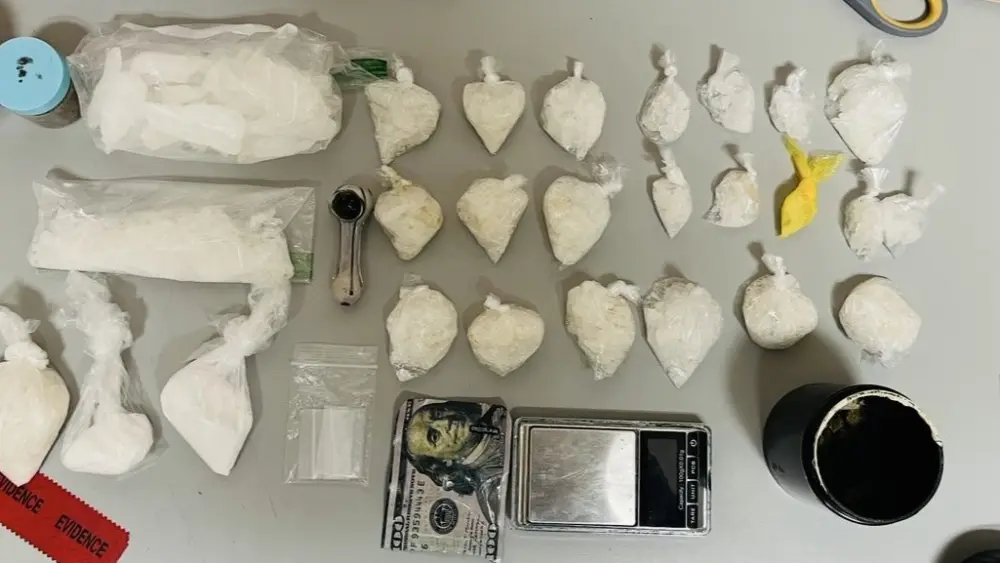 Week 8 of the 2022 Legislative Session
Week 8 of the 2022 Legislative Session
With each passing day of the session, you can feel legislative efforts intensifying as lawmakers seek to enact bills that are important to them and, most importantly, beneficial to their constituents. Budget review continues in the state Senate, and in week 8 of the session, we introduced and passed significant bills to help people across the commonwealth.
I was happy to carry Senate Bill 63 to final passage in week 8. The bill provides an exemption for records that would reveal the address or location of public officers, including judicial and prosecutorial officers, public defenders, peace and safety officers, public defenders, first responders, Cabinet for Health and Family Services employees who investigate abuse, neglect, exploitation, fraud or theft, law enforcement officers who testify in criminal cases, active and retired U.S., commonwealth’s and county attorneys and their assistants, active and retired corrections officers and persons employed at emergency call centers in Kentucky.
Senate Bill 63 creates a cause of action—in the circuit court where the violation occurred or where the public officer or immediate family resides—against anyone disseminating personally identifiable information in response to a decision or action taken by the at-risk person as part of his or her official duties or with intent to intimidate, harass, annoy or harm the person who files the action if the dissemination places the public officer or his or her immediate family at risk of physical injury or fear of harm to person or property. If successful, the person filing the action may be entitled to damages, including punitive damages and attorney’s fees.
Next, I want to inform you of a tax relief measure presented and moved forward by the Senate.
Senate Bill 194, a tax rebate plan, responds to inflation hitting a 40-year high and imposing financial challenges on Kentucky residents. Under my bill, each working Kentucky taxpayer will receive up to $500.00 and each household up to $1,000.00. This tax rebate is possible because of the Kentucky General Assembly’s conservative budgeting and unexpected and exceptional revenue growth, which is expected to yield over $1.94 billion in excess funds that rightly belong to Kentucky taxpayers. This plan will keep more money in working taxpayers’ pockets and empower them with the tools to make appropriate choices for their families.
Senate Joint Resolution 150, which I alluded to in the closing of last week’s legislative update, cleared the Senate in week 8. It aims to end the COVID-19 state of emergency declared by Governor Andy Beshear on March 6, 2020.
Before the legislature’s involvement in COVID-related decision-making, the Governor imposed widespread damaging mandates across the state. They ceased elective medical procedures, imposed statewide mask mandates, and closed access to student in-person learning. Mandates even restricted travel, closed businesses, and even targeted churchgoers. Since the onset of the pandemic, overdose deaths, suicides and child abuse rates have skyrocketed. We have reached the point where we need to leave this state of emergency behind us. Terminating the state of emergency on March 7 strikes a fair balance.
First, we want to provide the executive branch a window of opportunity to engage with the legislature on any efforts they think may be needed before the state of emergency ends. Secondly, if lawmakers do not terminate this current state of emergency by March 7, it will expire on April 15, and the issue there is the legislative session ends on April 14, and the Governor will have the ability to put in place administrative regulations without any oversight from the legislative branch. Lawmakers have spent most of the state of emergency on the sidelines, unable to take action despite constituents requesting it. We will make sure any potential executive measures receive the oversight they need.
With COVID-19 here to stay but tools and knowledge are available to all of us to stay safe, it is finally time for Kentucky to return to normal and declare an end to the two-year-long state of emergency. SJR 150 signals to all Kentuckians that their representatives recognize this reality.
I have previously detailed Senate Bill 138, also known as the ‘Teaching American Principles Act.’ The bill passed the full Senate in week 8, receiving hours of debate on the Senate floor and rightfully so. The bill takes a positive approach to heated discussion in the education sphere. It takes a positive approach to address all stakeholder’s concerns by expanding elementary school standards to middle and high school, setting up reasonable parameters in student instruction on controversial topics and establishing a baseline required study of 24 core American primary source documents.
Senate Bill 124 allows CDL license holders to renew expired licenses less than five years old without taking knowledge and skills tests. This only applies to CDL license holders whose license was not suspended, revoked or disqualified. Drivers must submit medical clearance, self-certification, a criminal background check, a review of driving history, and a vision test. Any former CDL license holders whose license was suspended because of a failure to submit a medical evaluation may renew their license. Finally, it allows drivers to keep their hazardous materials endorsements if they retake the required examinations.
Senate Bill 133 reorganizes several departments and offices within the Cabinet for Health and Family Services. Among provisions of the bill includes expansion of the responsibilities of the Office of Inspector General. This is a measure in several legislative efforts to refocus and refine legislative efforts to address challenges facing Kentucky families and children. I have the honor of serving on the Senate Standing Committee on Health and Welfare and as a member of special and statutory committees under this umbrella.
Additional bills passing in the Senate included Senate bills: 80, 148, and 152.







